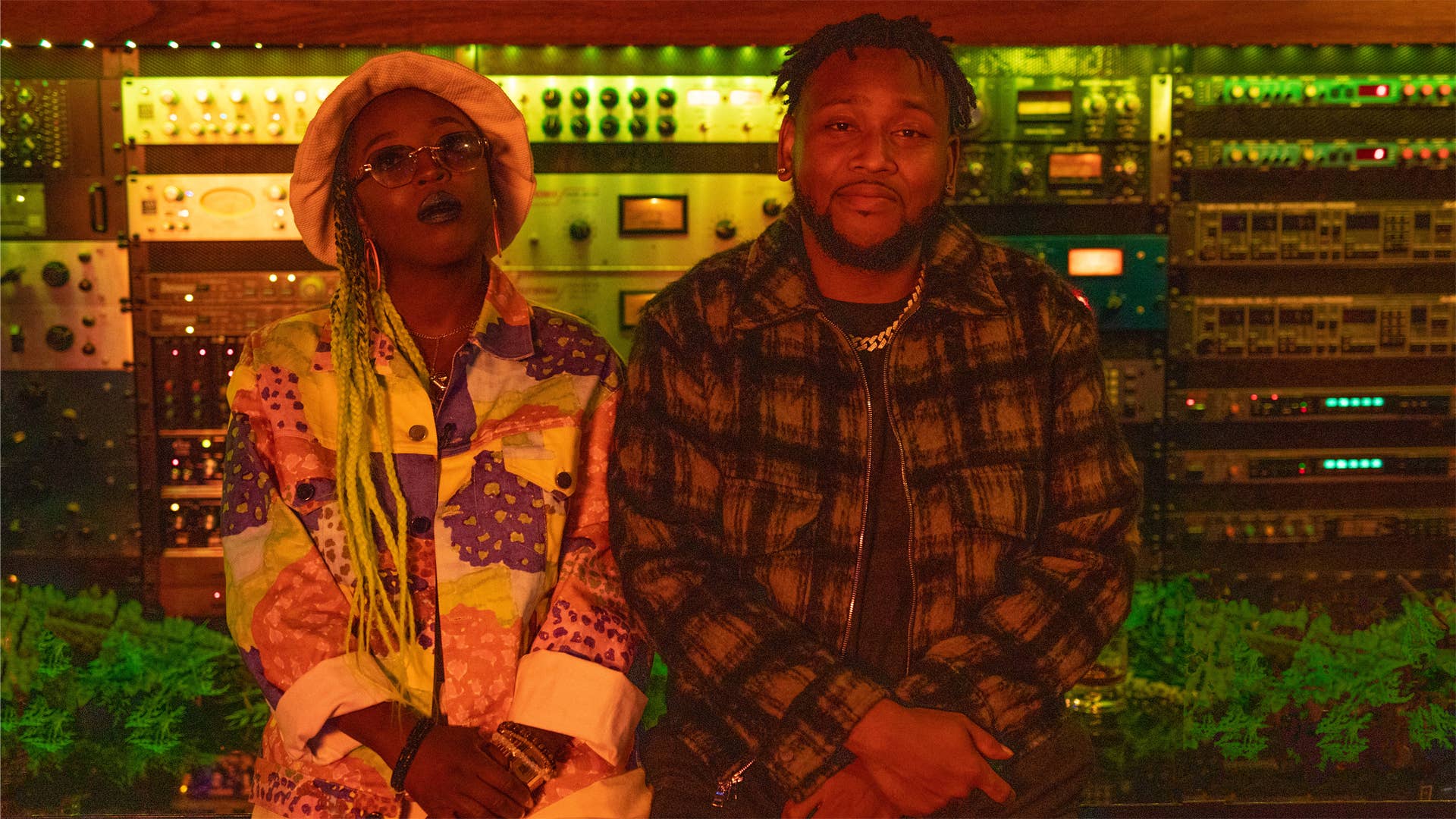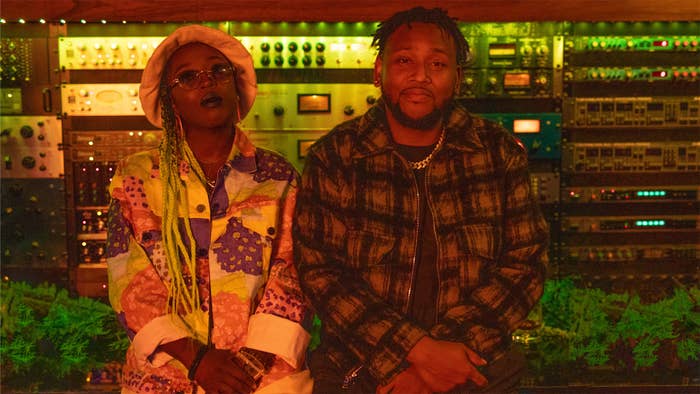
It is no secret that the music industry is experiencing an economic shift—with advances in technology and the digital realm, revenue streams have been changing for artists. This is why Grammy-winning producer Boi-1da wanted to not only create an opportunity for emerging music producers, but help them make an investment that will last a lifetime.
So he linked up with Bacardi for the third iteration of their Music Liberates Music program, which supports “authentic” Caribbean music by pairing mainstream talent with emerging artists.
This year, they’re bringing awareness to how male-dominated the industry is by shining a light on women producers. Boi-1da hand-picked three female producers to have an exclusive studio session with L.A.’s PERFXN and Toronto’s Bambii and Denise De’ion were the lucky trio selected to release three Caribbean-inspired singles as non-fungible tokens (NFT). The mixtape is only available on STURDY.EXCHANGE until October 24, and boasts a moving, afro-futuristic album cover designed by Australian 3D artist Serwah Attafuah.
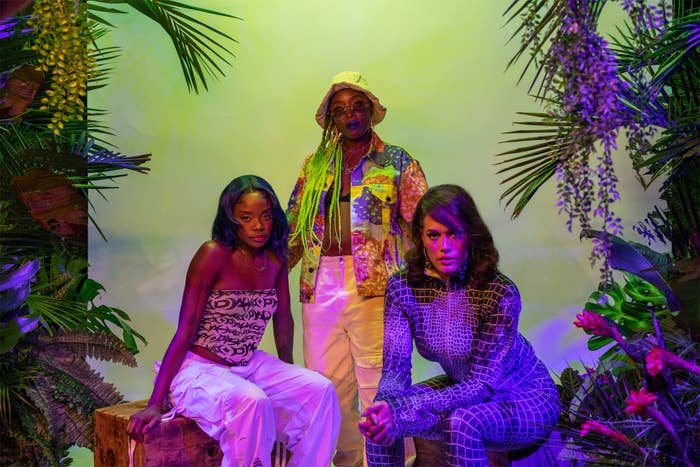
Driven to help align the gender disparity within the music industry, investors, or “fanvestors,” will now get the chance to make their own profits off the tracks all while supporting these artists—allowing the economic power to be in the hands of the producers and fans.
This is Denise De’ion’s first-ever NFT, and while she is excited about everyone getting “a piece of the pie,” she is also grateful for all the recognition she’s receiving through this partnership.
The Toronto native has been working as a professional music producer and songwriter for the past five years, making Caribbean-infused tracks inspired by hip-hop, pop, and R&B. She’s made a name for herself in the city and throughout the U.S., winning first place at the 2020 Canadian Beatmakers League, as well as first place at the 2019 IStandard ASCAP LA showcase. She’s worked with artists like Haviah Mighty, and landed a music placement on Netflix’s Ginny and Georgia.
We got a chance to chat with Denise De’ion about working with the Drake-affiliated beatmaker, how NFTs can change the game, and her advice for other female producers.
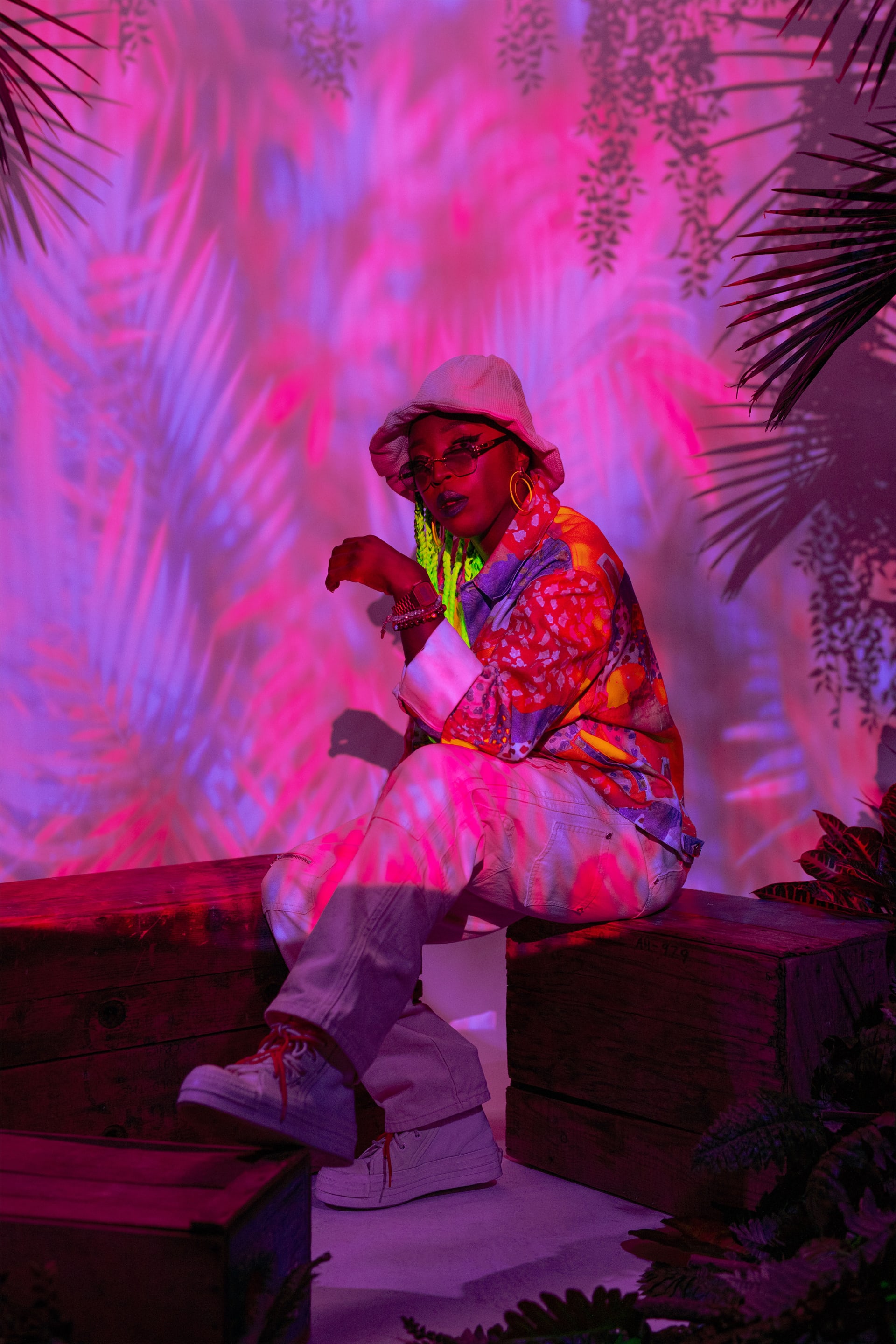
What was it like working with Boi-1da?
When you’re emerging and on the come up, you always dream of being able to work with who you look up to. Working with Boi-1da was nothing short of great. I’ve admired him for a long time and I’m thankful for this opportunity and his advice and guidance.
As you see the purchases for your NFT single “Juice” continue to come in, what does that support mean to you?
I always manage my expectations. So, I was like, if one person buys it great, if two people buy it great. But it also makes me want to just work harder because I’m still emerging. So, maybe next year, if I did something like this again, like, within the day, a thousand would just sell out quickly. It’s an interesting experience.
And people who I never even thought would actually purchase it are purchasing it. So, it just really means that the hard work that I’ve been putting in hasn’t gone unnoticed.
As a female music producer, how would you describe your overall journey in the music industry thus far?
I started off as an artist-songwriter, and then I kind of developed this desire to want to learn how to produce. And at the time, the accessibility—like being a female, and, you know, working with other producers, it just wasn’t there as much for me. And I’ve always been the type of person (to say), if someone can’t help me with it, I’m going to figure out how I’m going to do it for myself. Then I decided to enroll in a school that taught me the recording arts section of music.
How do you think this project will have a long-term impact for female producers in Canada and around the world?
We’re in the beginning stages. We’ve identified that there’s a percentage of about 2 percent of female producers. And the only way for that to really change is for things like this, that happen. You know, like bigger brands coming on board and saying, “We recognize that 2 percent and we want to help to change that.” And so we put together these campaigns, we circulate some visuals, we circulate this NFT single, and people see the credits, and then they start to just be like, “Oh my gosh, oh, females really are dope!” And then it’s just like a wildfire that spreads.
When we have allies like this, that 2 percent eventually becomes three, becomes four, and five. So, we’re at the beginning stages of this shift and I’m excited to be at the ground floor, so to speak. It’s only up from here.
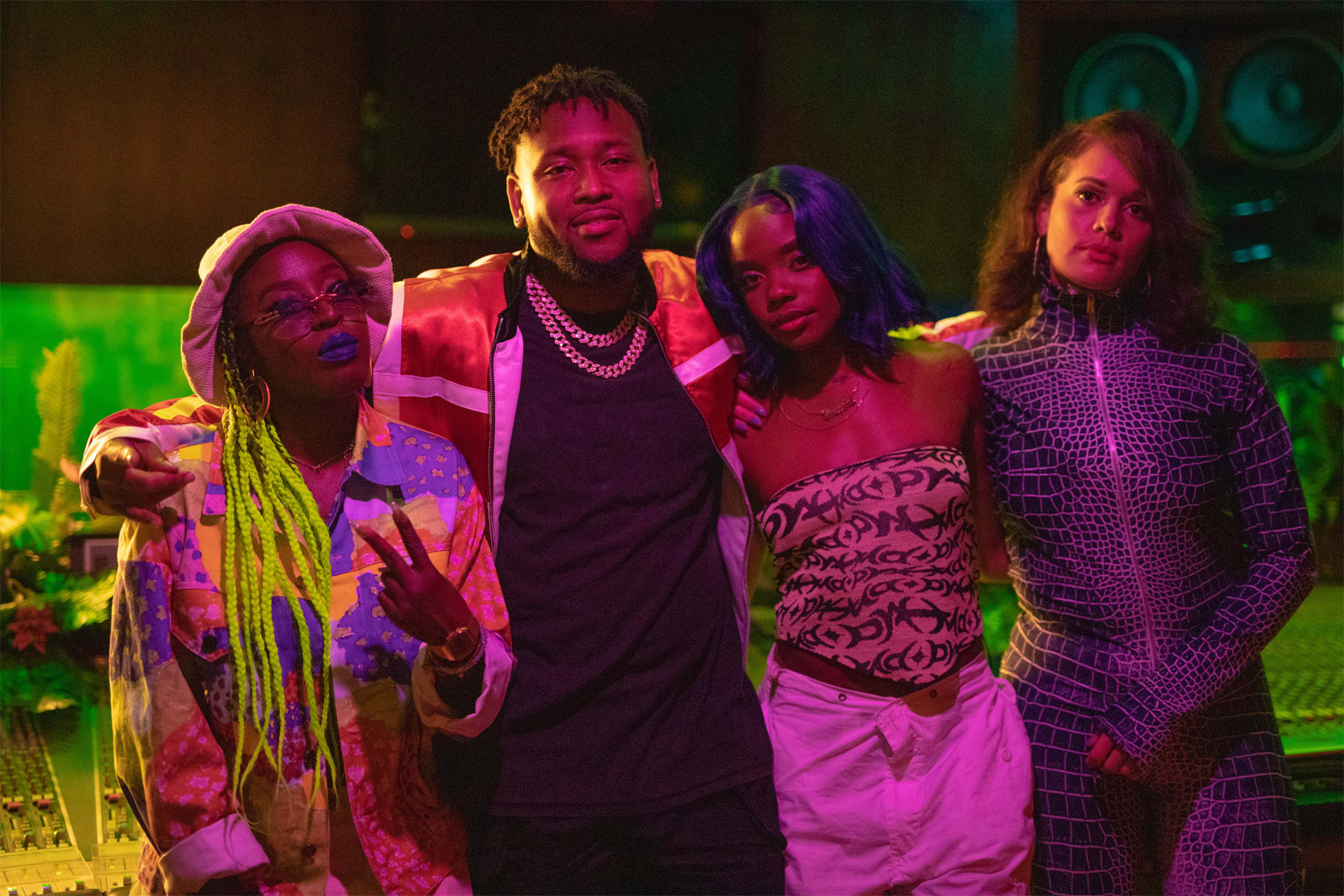
As someone who is a traveling producer and offers a variety of services across various platforms such as SOUND Better, will this exposure to NFTs change the way you’re currently navigating the music industry?
Oh, I think for sure, because, already the gears in my head are turning on how I can approach NFTs once everything is said and done with this. You know, what do I want that to look like for myself.
There’s always these trends and things that come along, and we see what works and what doesn’t, so for me, as a producer, I’m always open to something new, and seeing how that’s going to impact me on a grander scale.
So, this NFT model, like I’ve heard the talks about it, I know a few people that have done it for themselves. I’ve also been very curious with how it works for producers. And (now) I’m just studying it and seeing what might work for me.
What would you say is your message to female producers today?
I think if anything, it’s that it’s possible. It’s not the same as it was like five-ten years ago. There are a lot of females identifying producers that have been doing it for a long time and now there’s a light being shined on them. Now, people are starting to see, OK yeah, we exist. Overall, my message is that anything is possible. If you want it, you can get it.

